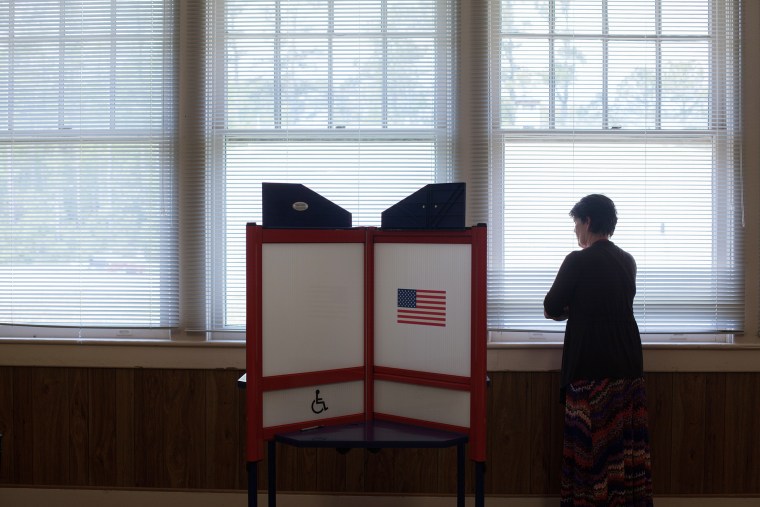Citing the threat to minority voting rights, the Obama administration and civil rights groups have asked a judge to put North Carolina’s restrictive voting law on hold for this fall’s election—when the state will host a pivotal U.S. Senate race.
If the law is allowed to remain in effect this November, “African-Americans in North Carolina are likely to suffer substantial and disproportionate impairment of their right to vote,” the law’s challengers wrote in court documents filed late Monday. They asked that the court issue a preliminary injunction blocking the controversial measure.
Also Monday night, lawyers for North Carolina asked that the challenge to the law be thrown out, arguing that the plaintiffs have offered no evidence that it would disproportionately harm blacks.
North Carolina’s voting law, passed by Republicans last summer in the wake of the Supreme Court ruling that weakened the Voting Rights Act, has been called the nation’s harshest. It cut early voting, eliminated same-day registration, ended out-of-precinct voting, and scrapped a popular program that helped high-school students to pre-register, among other restrictive provisions. It also contains a strict photo ID requirement, scheduled to go into effect in 2016.
The measure was quickly challenged by the Justice Department and civil rights groups, who allege—backed by reams of evidence—that it disproportionately affects black and Hispanic voters. But the trial won’t take place until summer 2015, meaning that, without an injunction, the law would be in effect this fall.
"Voters are at real risk of being blocked from participating in the pivotal midterm election," said Dale Ho, director of the ACLU's Voting Rights Project, in a statement. "If this law is subsequently found unconstitutional, as we fully expect it will be, North Carolinians who were denied the vote will never get a do-over."
North Carolina’s tightly-contested U.S. Senate race, in which Republican Thom Tillis—a key backer of the voting law—is taking on incumbent Democrat Kay Hagan, could help determine control of the Senate.
The plaintiffs in the case also want the court to hold a hearing so that ordinary North Carolinians who will face hurdles in voting thanks to the law can offer testimony.
The legal standard for getting an injunction is significantly lower than that required for overturning the law. Voter ID laws passed in Wisconsin and Pennsylvania were blocked from taking effect for the 2012 election thanks to injunctions. Both laws were later struck down, though Wisconsin has appealed.
A recent ruling in the North Carolina case will likely mean that emails sent by Republican lawmakers as they strategized over the law’s creation and passage will be turned over. The plaintiffs aim to use the emails to make the case that the law was enacted in order to discriminate against minorities, who tend to vote Democratic.
